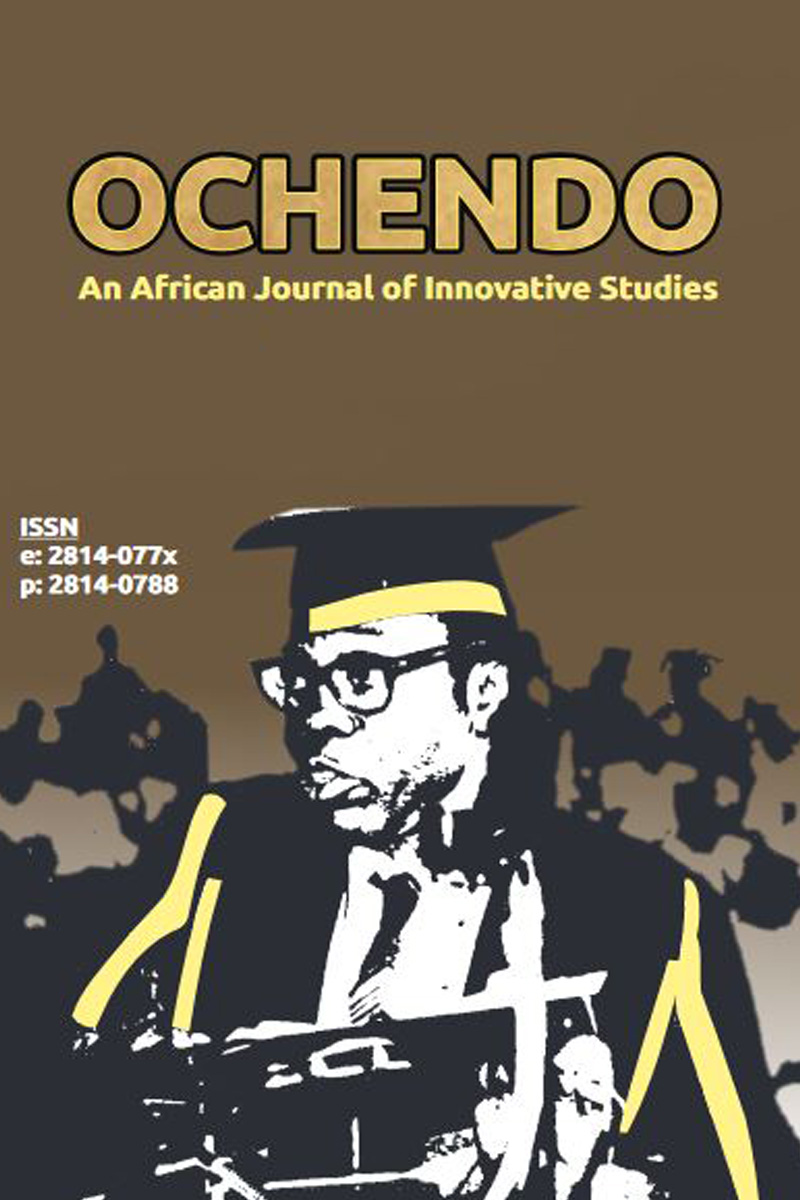 OCHENDO - An African Journal of Innovative Studies (OAAJIS) (Vol. 2 No. 1, 2021)
EFFECTS OF MODERNITY ON FAMILY AND PATTERN OF PARENTING IN IGBOLAND
OCHENDO - An African Journal of Innovative Studies (OAAJIS) (Vol. 2 No. 1, 2021)
EFFECTS OF MODERNITY ON FAMILY AND PATTERN OF PARENTING IN IGBOLAND
ABSTRACT
Modernity brought about changes in family relationships and patterns of parenting in Igboland. Prior to modernity, traditional Igbo family values of communalism, community-oriented enterprise were ripe, driven by the dictum, ‘‘I am, because we are; and since we are, I am’’ (Mbiti). In essence, anyone’s burden or success is everyone’s. The egalitarian spirit prevalent then is encapsulated in the saying of Chinua Achebe (1984) in the novel, Arrow of God: ‘‘no man however great was greater than his people…no one ever won judgement against his clan’’. This attitude was also evident in the pattern of parenting. The training of a child is seen as a corporate responsibility. Anyone's child is, more or less, everyone’s. This is captured by the Igbo saying, ofu onye a naghi azu nwa (the training of a child is everyone’s responsibility). Thus, any Igbo child could address an elder as nna or nne (father or mother); an elder could address any child as nwa m (my child). With modernity’s trends of industrialization, urbanization, individualism and increased sense of personal autonomy, these traditional family system and parenting pattern are fast receding, especially in urban centres. Personal ambitions are pursued to the detriment of the community. Many parents abhor others interfering with their children’s training and discipline. The society seems to be at crossroads. This paper examines this evolving trend in Igboland, with a view to unravelling its implications for the society and how best the society could be positioned to face the challenges more squarely and progressive.

